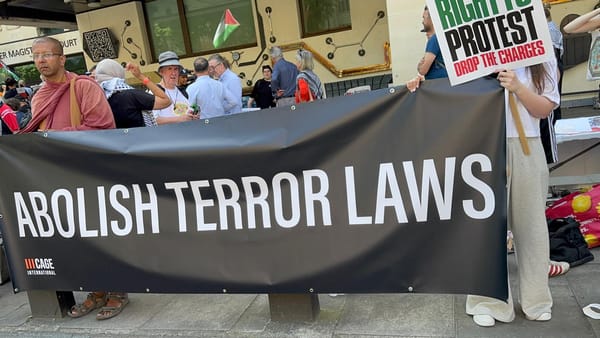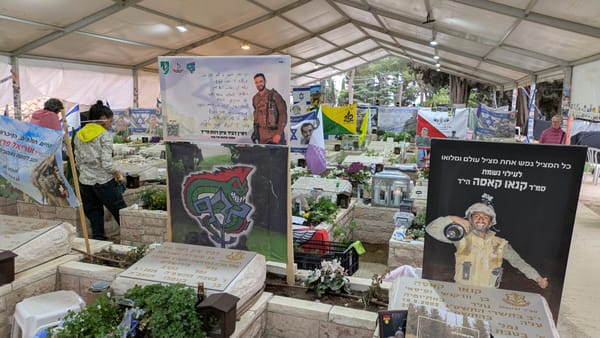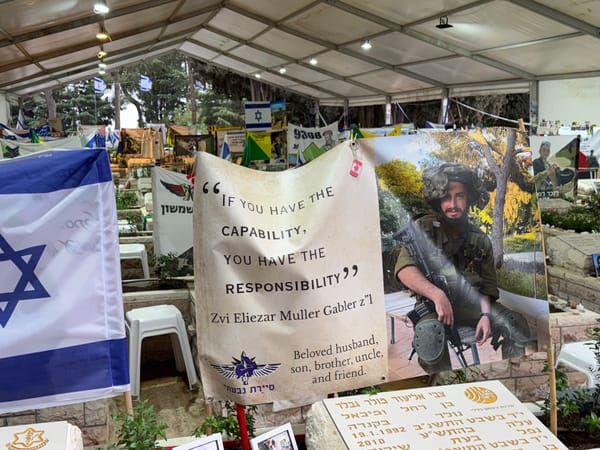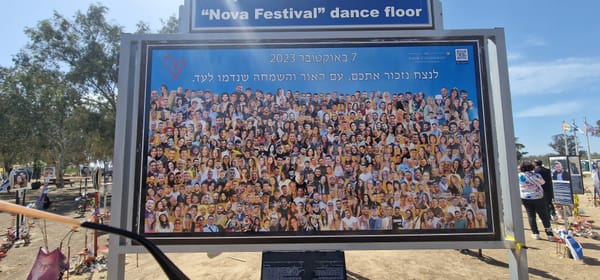It's Time to Pick Up the Torch
When many regard the pro-Palestine marches and the 'Cenotaph defence' as equal affronts to the message of the Remembrance weekend, why did we think it was appropriate to mark the end of the two minutes silence with a banner bearing the words 'For Israel, Against Anti-Semitism'.
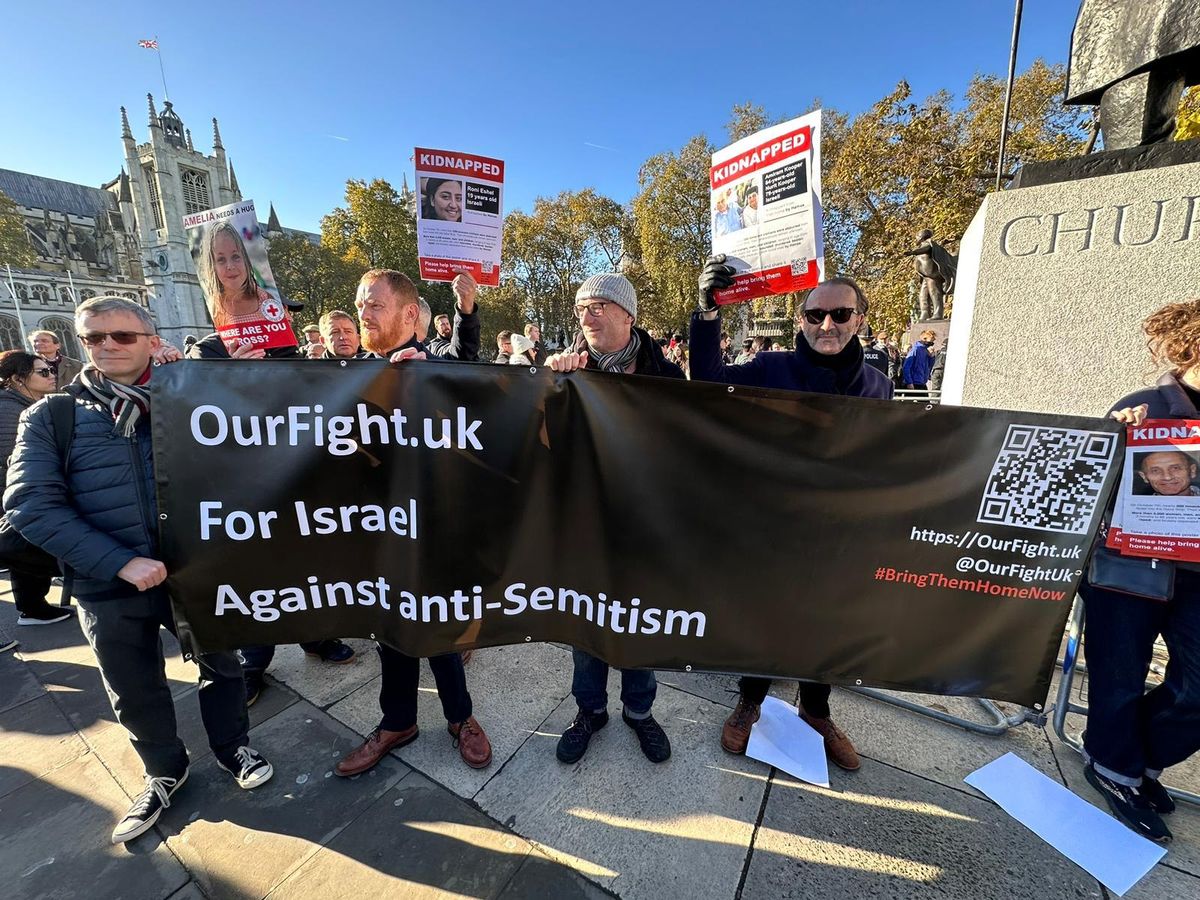
At the end of a controversial weekend, it's worth explaining exactly why those of us who set up Our Fight chose to stand next to Churchill's statue on Remembrance Day. Our primary aim was to show solidarity with Jews in Britain who are facing rising anti-Semitism and experiencing a growing sense of isolation.
Alongside that, we were determined to show our support for Israel, and demonstrate that we are behind their right to defend their population from continued terror attacks, and that the terms of any ceasefire are for Israel to decide.
But why on Remembrance Day?
When many regard the pro-Palestine marches and the 'Cenotaph defence'
as equal affronts to the message of the Remembrance weekend, why did
we think it was appropriate to mark the end of the two minutes silence with a
banner bearing the words 'For Israel, Against Anti-Semitism'.
"We Will Remember Them"
It is of course right that at 11am on Saturday we took two minutes to remember those who made the ultimate sacrifice. Remembrance Day, and the associated events on Remembrance Sunday, have come to represent not just the veterans of the two world wars, but all those that have fought for Britain.
As The Exhortation incites:
At the going down of the sun and in the morning
We will remember them.
And we should.
But the Remembrance events have also come to represent the ideas that those who battled were fighting for. It has come to symbolise a struggle for freedom, for democracy, for independence. And it's worth reflecting on whether we can truly honour our fallen heroes if we stand by, when posters of hostages are ripped down, when fellow citizens tell their children not to display their Jewishness, when our young are told in schools and universities that Hamas is some kind of national liberation organisation, and then join marches to say it's so.
Many people will agree with these points and say yes, that's why we should have banned the marches. These demonstrations are an insult to the memory of our fallen, they suggest.
But that is not our point.
To ban demonstrations in our nation's capital on the weekend that remembers those who fought for freedom and democracy would be the ultimate irony.
The Silence is Over
Our message instead is that if their sacrifice is to mean anything, it's time to recognise that we've had our two minutes of silence, and now it must be over; it is time for us all to speak up, in a way that our heroes would recognise.
This shouldn't be a surprise.
John McCrae, who in 1915 penned the poem that inspired the use of the poppy as the now widely-recognised symbol of remembrance, asked us to not only honour those who fell, but to continue their fight:
To you from failing hands we throw
The torch; be yours to hold it high,
If ye break faith with us who die
We shall not sleep, though poppies grow
In Flanders' Fields.
We cannot 'break faith' with those who gave their present for our future. Which is why at 11.02am on Saturday, we ended the silence with 'For Israel, Against Anti-Semitism'.
